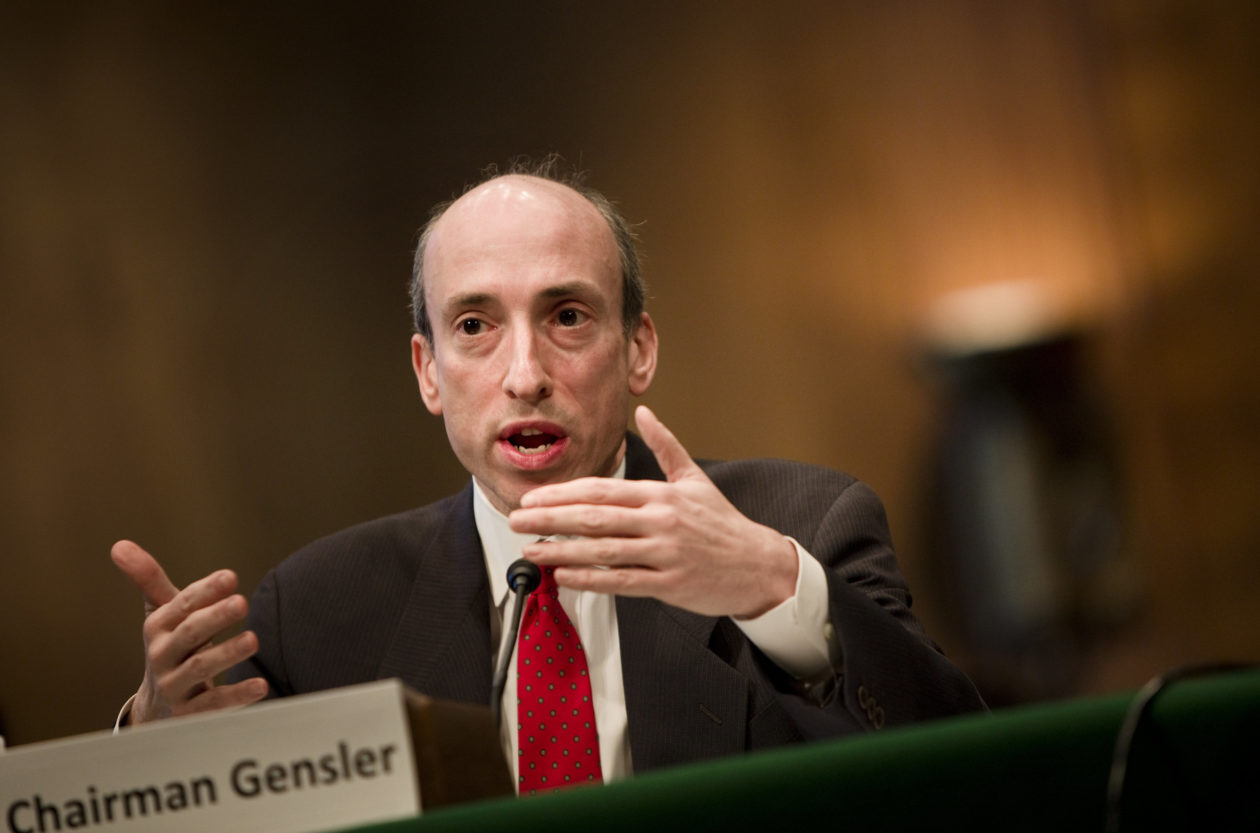The Nasdaq-listed crypto exchange said the Securities and Exchange Commission seems to be undermining its own role as the monitor of companies registering to sell shares to the public.
Coinbase, the largest cryptocurrency trading platform in the U.S., said the move by the SEC to threaten legal action against the exchange for alleged violation of securities laws, did not make sense when the same regulator approved the Coinbase application, or S-1 document, to sell shares to the public in April 2021.
Coinbase made the comments in a 73-page report released on Thursday by its legal team in response to a so-called Wells notice issued last month by the SEC, which warned it was considering legal action against the exchange over its cryptocurrency staking services and other products.
If the SEC believed that Coinbase’s core businesses violated securities law, “it would have been required by its own mandate to prevent the S-1 from becoming effective to protect the investing public,” the report says. “Instead, it allowed the offering to proceed, and millions of members of the public invested their savings in Coinbase.”
See related article: Coinbase ups the ante with SEC, asking court to require crypto clarity from regulator
The report argues the SEC appears to have adopted a new view of cryptocurrency platforms following the November collapse of the FTX exchange, which filed for bankruptcy amid allegations of investor fraud.
FTX is “entirely dissimilar to Coinbase,” Paul Grewal, chief legal officer of Coinbase, said in a Thursday video released in tandem with the report and including Brian Armstrong, the firm’s chief executive officer.
Enforcement action against Coinbase is “not constructive,” Armstrong says in the video. He has earlier argued that Coinbase has been seeking clarification from the SEC on rules of the road for crypto assets for 10 months and received no response.
On Monday, Coinbase sued the SEC, asking that the courts require the regulator to respond to a petition Coinbase filed in July 2022 seeking clearer crypto regulation guidelines from the SEC.
Wild West
The SEC Chair Gary Gensler, however, made clear his views on some sectors of the cryptocurrency industry in the U.S. House Appropriations Committee hearing in late March.
“We’ve seen the Wild West of the crypto markets, rife with noncompliance, where investors have put hard-earned assets at risk in a highly speculative asset class,” he said. He sought US$2.4 billion in funding from Congress to help expand the agency’s monitoring of the cryptocurrency industry.

In a Twitter video on Thursday, Gensler said crypto markets suffer from a lack of regulatory compliance, “not a lack of regulatory clarity.”
The SEC has targeted several crypto platforms in recent months. In February, the regulator fined U.S. crypto exchange Kraken and shut down its staking program, a move the SEC counted as “a win for investors.” Earlier this month, the SEC charged Seattle-based crypto exchange Bittrex for operating an unregistered exchange.
However, the SEC seems divided on its current approach to the developing cryptocurrency and digital asset industry. SEC Commissioner Hester Peirce has publicly criticized the agency’s enforcement action against Kraken, calling the approach “paternalistic and lazy.”
Very direct
In the Thursday video, Grewal of Coinbase said the Wells notice means that the SEC has reached a preliminary determination that aspects of Coinbase’s core business violate securities laws.
“So I want to be very direct with you. Coinbase does not list securities,” Grewal added. “We use a robust process based on SEC guidance to make sure that we don’t list securities. We reject some 90% of the assets that we review.”
The crypto exchange further suggested that an SEC enforcement would “present major programmatic risks” to the agency itself.
“An enforcement action against Coinbase would send a message to market participants and to the public that there is existential risk to being proactively transparent with this Commission,” the exchange’s attorneys said in the Thursday report.
But it is not just the SEC targeting crypto operations. Binance, the world’s largest cryptocurrency exchange, and founder Changpeng Zhao were sued by the U.S. Commodity Futures Trading Commission (CFTC) in March for allegedly violating derivative rules.

The CFTC accused Binance of disregarding “federal law essential to the integrity and vitality of the U.S. financial markets” by knowingly offering futures and derivative products without registering under the CFTC.
In an interview with Forkast, Christopher Giancarlo, a former chairman of the CFTC, expressed his disappointment in Washington’s hostility towards cryptocurrency.
“We are, in the United States, like deer caught in the headlights, at least in the official sector, because of these transformative, challenging new technologies,” he said.
How are investors reacting to the legal threats against Coinbase and its spat with the SEC?
Coinbase’s stock on Nasdaq closed at just above US$54 on Thursday. The stock is way off an all time high of about US$342, but is up 61% so far this year, which is in line with gains in Bitcoin.
This week, New York-based investment bank H.C. Wainwright initiated a “buy” rating on the stock.
“We believe Coinbase is uniquely positioned to benefit from the large and rapidly growing global crypto economy given its trusted brand, easy to use products, and focus on compliance and regulation, and we expect the company to gain market share in 2023,” the Wainwright report said.






